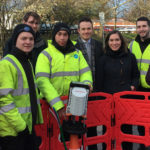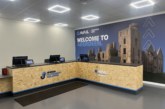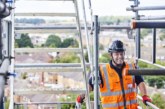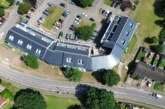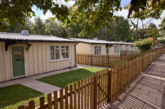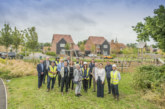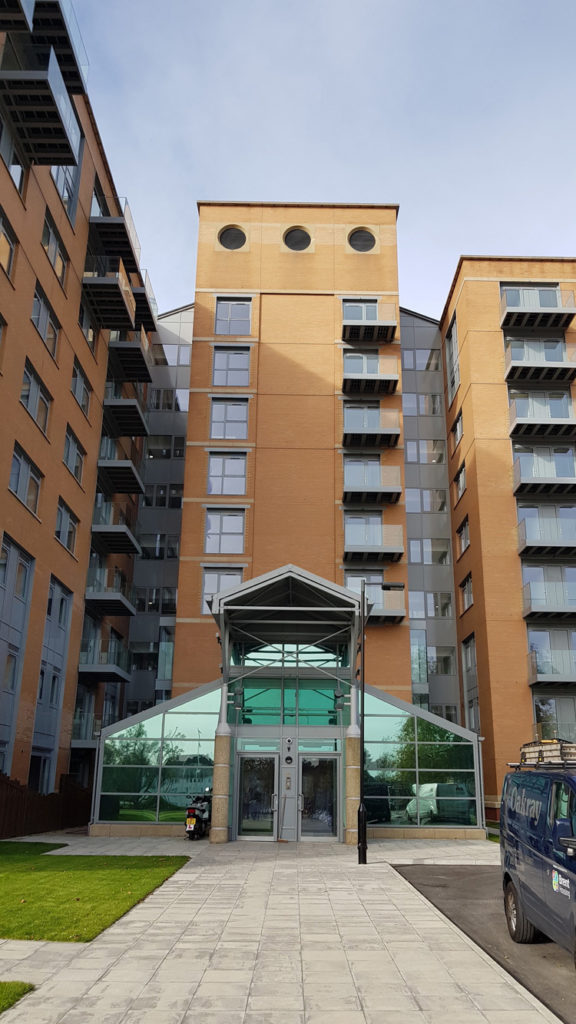 Dan Craven, Head of Sales for Hyperoptic, considers how local authorities can help eliminate digital exclusion.
Dan Craven, Head of Sales for Hyperoptic, considers how local authorities can help eliminate digital exclusion.
It is estimated that 11.3 million adults in the UK are digitally excluded and 37% of these people live in social housing. To be ‘cut off’ from the Internet means people are disadvantaged when it comes to crucial factors that can help them find jobs online, get the cheapest deals on utilities or learning new skills. The Government estimates that the digital skills gap costs the UK economy approximately £63bn a year, whilst much of this is down to education, it’s clear that not having a decent broadband connection at home is an impediment to learning, and hence closing this gap.
One of the UK’s largest housing associations is the Hyde Group, which manages 48,000 properties and provides housing for 95,000 customers. They have identified their own role to play in helping to narrow the digital exclusion gap. Chyrel Brown, Resident Services Director, explains: “Our latest figures show offline rates among housing association tenants are 23% compared to 14% across all social groups. There are a number of reasons for this but one of them is the lack of affordable, reliable home broadband.”
How to fix the issue
Connecting tenants to fast broadband at affordable price points is imperative. Currently nine out of 10 homes and businesses in the UK can only access their broadband through one of two routes — broadband packages from Openreach’s FTTC network and Virgin’s DOCSIS network. This has restricted the market. With these networks, tenants are also technically limited by the services only being part fibre. This means users rarely get the advertised speeds and performance is subject to the distance from the fibre source. Further challenges for tenants are limited contract options, such as 12 or even 24-month commitment periods, which can be daunting for some.
Things are changing however, and some providers are not only offering lightning-fast full fibre services but also rolling one-month contracts and low-price broadband-only services (with no telephone line rental on top). Without doubt there needs to be more choice for tenants.
Partnerships are key
To improve digital inclusion in social housing, partnerships are key — namely those between broadband providers, local authorities and housing associations. There is a widely held myth that the largest barrier to installing lightning-fast new fibre is lack of finance. It isn’t, rather the biggest challenge is getting the necessary permissions to install fibre services. Normally this take the form of a ‘wayleave’ — the right of way granted by the landowner to give access to the property.
Hyperoptic is seeking to streamline this process through new ‘block’ agreements. These ‘game changing’ agreements see council-owned properties supplied with full fibre and at the same time privately owned properties are given access to it. Such agreements have been developed with Southwark and Brent Councils, these will see over 200,000 London homes connected under one agreement. But we need more, up and down the country to really bring the promise of full fibre to the masses.
Network Homes, an award-winning HA with over 40 years’ experience of providing affordable housing, has signed its full portfolio of 20,000 units to Hyperoptic which will supply new fibre connections direct to the homes. Customers will have a choice of a range of packages with speeds up to 1Gbps (1,000 megabits per second), which is over 21x faster than the UK average.
The value of partnerships is explained by Steven Waite, Director of Technical & Commercial at A2Dominion: “We recognise the vital role that fast and reliable broadband services can play in getting a tenant online. However, in the past we’ve had very little control over what broadband and telephone services our residents could opt for. It was a broadband postcode lottery depending on the available existing broadband infrastructure at each site. Thanks to our collaboration with Hyperoptic, thousands of properties across our portfolio are now enabled with its gigabit connectivity and it’s growing all the time.”
A genuine ‘win-win’ situation
Block wayleave agreements provide local authorities with a genuine ‘win-win’ situation. The broadband provider offers a tailored full fibre broadband specification with a cost neutral installation. In addition, the provider undertakes maintenance at its own cost going forward. Residents are then offered a range of packages ranging from 30Mbps to 1Gbps. Hyperoptic has also developed a targeted, low-cost 5Mbps unlimited service, aimed at developments with social housing tenants, at just £9pm — no extra or hidden costs, no installation fees, no line rental, just the lowest cost fibre broadband in the UK.
Being a ‘partner’ rather than a supplier is crucial and it is these kinds of partnerships that are enabling digital inclusion and bringing hyperfast broadband to a broad spectrum of demographics and property types.
Header image: Pictured from left to right: Cllr Fiona Colley, Phil Taylor (Hyperoptic), Dominic Hunt (Osprey TRA Treasurer), Tyrell Bovelle (Hyperoptic), Daniel Craven (Hyperoptic ), Cristina Cioffi (Osprey TRA secretary), Liam Dibley (Hyperoptic), Cllr Stephanie Cryan

